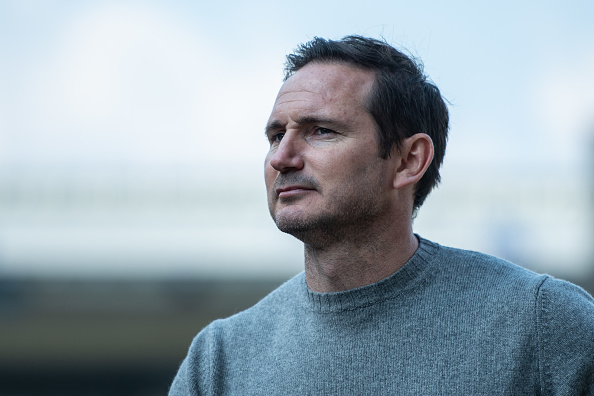After the final international break of the season, the Premier League returns this weekend and with it, the run-in, crunch-time, squeaky bum-time or any other term used for the final furlong of the English football’s centre-piece. Manchester City and Liverpool are locked in a battle for the title (and everything else), the top four race is its now-regular stumble to the finish line and at the bottom, Everton and Leeds United are fighting just to stay in the league.
Whatever about the rest, Everton can’t afford to go down, literally. With record losses of £371.8 million across the last three seasons, and regardless of the authorities taking COVID into account and the personal wealth (if not football intelligence) of majority owner Farhad Moshiri, relegation would likely lead to severe financial trouble for Everton. And that’s not to mention the proposed construction of a new stadium.
These balance sheet losses have transferred onto the pitch with Everton suffering their highest number of defeats at this stage of a 38-game season (16), as well as lowest points tally (25). There have been just seven wins in 27 games. The departure of Rafael Benitez and the appointment of Frank Lampard hasn’t had the desired effect as yet for Everton. Alex Iwobi’s 99th-minute winner versus Newcastle United felt huge but it was followed by a FA Cup capitulation at Crystal Palace where Lampard accused his players of lacking “balls”.
That’s something they’ll need for the rest of the season with a daunting 11 game run-in, including a Merseyside Derby. A Premier League without Everton would feel wrong – after all, they’ve spent the most seasons in the top flight of anyone. But history has shown us, no one’s too big or too good to go down.
Everton: No One Is Too Good to Go Down
Before the Premier League Changed Everything, Big Teams Went Up and Down
In the decades prior to the birth of the Premier League and all that came with it, the gap between the top two leagues in England was far smaller; both in playing and financial terms. Big clubs went down, most famously Manchester United in 1974, just six years after winning the European Cup – it was here that the phrase “too good to go down” was first coined. Leeds and Chelsea also spent stints in the second tier after their 1970s heydays. Manchester City were one of many yo-yo clubs and continued to be until the early 2000s.
On the flip side, it wasn’t uncommon for sides to jump up the division, compete and win a title in just a few seasons with Leeds landing the final Division One title in 1992 just two years on from going back up. Two decades earlier, Brian Clough did similar in even more shocking fashion with Derby County.
Two Exceptions at the Start Before the Status Quo Sets In
Blackburn Rovers and Newcastle were fellow benefactors of the smaller gap between the leagues in the early years of the Premier League, both gaining promotion and instantly becoming challengers at the top of the table.
However, once the riches of the Premier League were secured and it became a separate entity, operating in a different universe, from the Football League, this stopped happening. The big clubs had the status and the power. The current “Big Six” won’t ever go down again. Shock relegations are seen less and less with the usual suspects found at the bottom most years – promoted sides and Burnley. Like anything though, there’s been a few exceptions.
Middlesbrough – 1996/97
Not exactly a big club but going into the 1996/97 season, optimism was high on Teeside. A 12th placed finish and the big-money signings of Fabrizio Ravanelli and Emerson, to add to the Brazilian Juninho, had pundits tipping ‘Boro for a European push.
What came instead was relegation despite going toe to toe with some of the top sides – 3-3 draws with both Liverpool and Manchester United. A three-point deduction for “illegally” calling off a game with Blackburn prior to Christmas due to illness and injury sealed their fate. To further compound the misery, Bryan Robson’s side also lost both domestic cup finals.
Blackburn Rovers – 1998/99
Jack Walker’s wallet helped Blackburn challenge for, and eventually, win the Premier League in 1995. Manager Kenny Dalglish would leave that summer joined by Alan Shearer the next, resulting in Rovers falling away from the likes of United and Arsenal.
European football was still on the table, as a sixth-placed finish under Roy Hodgson in 1997/98 guaranteed a spot in the UEFA Cup. The 1998/99 season started poorly and never recovered – Hodgson was sacked and replaced by United assistant Brian Kidd (his sole managerial gig), while captain Tim Sherwood was sold to Spurs mid-season. Despite still boasting members of the title-winning side, namely Chris Sutton, Tim Flowers and Jason Wilcox, the club were relegated just four years on from their greatest day.
West Ham United – 2002/03
Premier League stalwarts for most of the last three decades, West Ham have been relegated twice. The class of 2010/11 were a poor side carried by Scott Parker but in 2002/03, the Irons had an all-star cast of Paolo Di Canio, Joe Cole, Michael Carrick, Jermain Defoe et al. and finished seventh the season prior.
A diabolical first half of the campaign would have them rooted to the bottom of the table – by the end of January, they’d won just three of their 24 games. As if the players suddenly realised they were good, seven wins came in their last 14 games. Adding to a traumatic season, manager Glenn Roeder stepped down briefly due to a non-malignant tumour in April. West Ham still hold the record for most points (42) of a relegated side in a 38-game season. Not one to celebrate.
Leeds United 2003/04
Perhaps the most infamous case of a big club going down in Premier League history, and definitely the most dramatic fall from grace – from top of the table on New Year’s Day 2002 to relegation in 2004. The demise of the Elland Road club can almost solely be blamed on chairman Peter Ridsdale, who banked on continued Champions League qualification to cover the costs of his frivolous spending.
Once this didn’t happen, the wheels came off and a fire-sale led to the sale of star players. The side that went down still contained the likes of Alan Smith, Mark Viduka, Paul Robinson and Ian Harte but the crisis that enveloped the club proved too much to handle. Leeds dropped into League One before returning to the top flight in 2020 – will they be there next season?
Newcastle United – 2008/09
The season in which the Mike Ashley regime at St. James Park truly began and fittingly ended with relegation in May. It started with the resignation of club icon Kevin Keegan, in his second stint in charge, following a series of disagreements with the board, Dennis Wise amongst its members, who were branded the “Cockney Mafia” by disgruntled fans. Chris Hughton took charge either side of an interim stint from Joe Kinnear, who left due to health issues. The Magpies ended the season with another legend in charge; Alan Shearer.
Five managers, and just seven wins overall led to relegation for a side “starring” Michael Owen, Obafemi Martins, Fabricio Coloccini and Damien Duff – whose own goal on the final day was the final nail in the coffin. Relegation came again in 2016 but by then the side was much diminished and the stench of Ashley’s negligence was everywhere.
Main Photo






